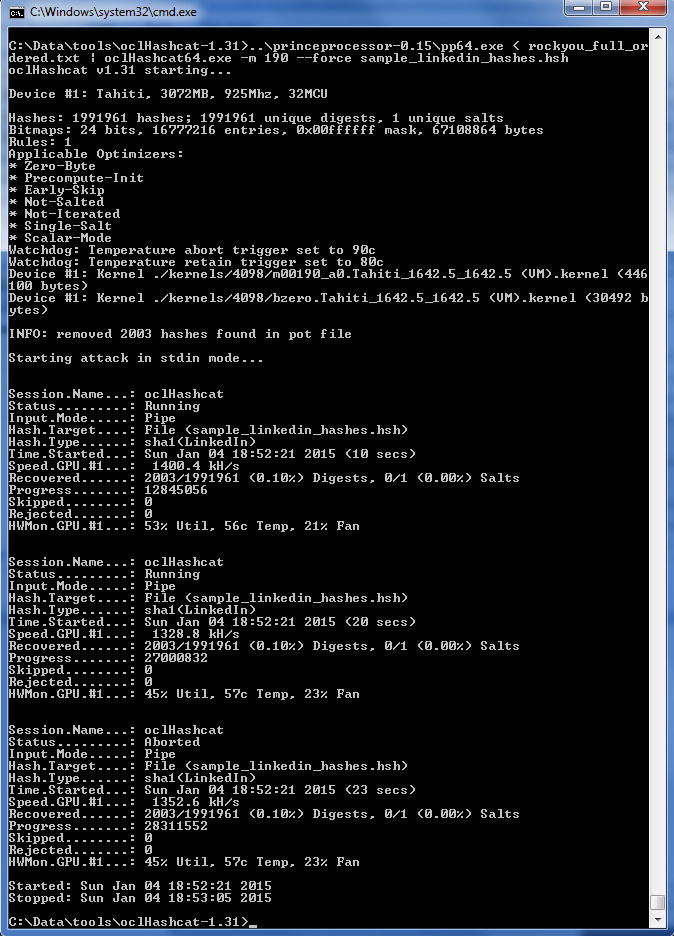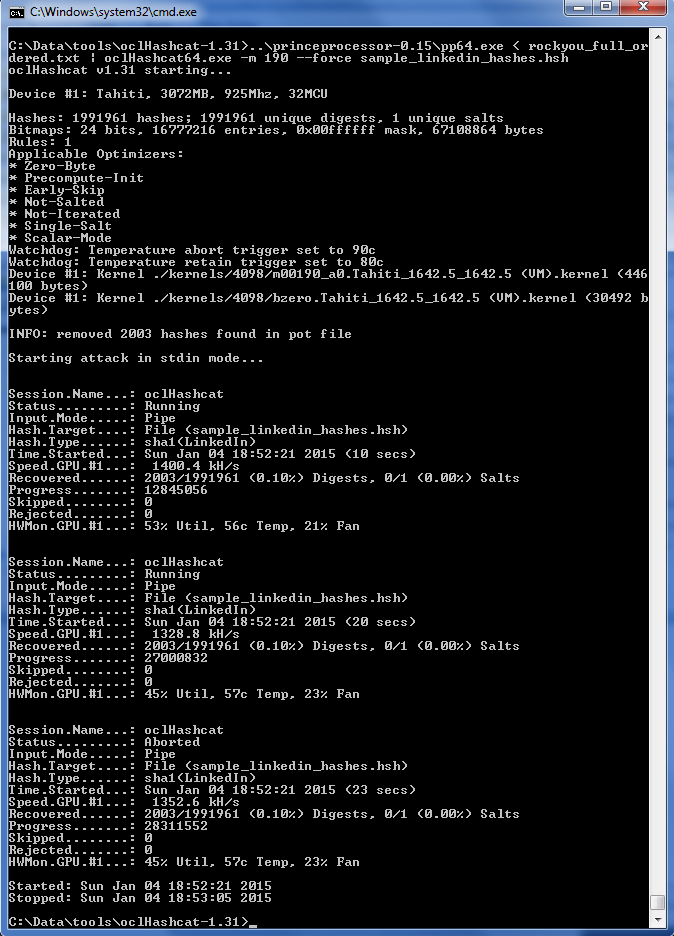
Quick Status Update
This is just a quick post to let you know that I for once have a valid excuse for not updating this blog in a timely manner. I actually found a job! Thanks to everyone who offered help, recommendations and encouragements. The only catch is that right now it's being decided if I have to run my posts through our public release office or not. Don't worry, this blog is not going away regardless of the decision.. It might just gain a few unwilling readers ;)
As to my new company, I'm going to keep that a bit of an open secret. This blog reflects my personal views. I certainly don't speak for them, and I plan on avoiding any topics that have to do with my day job, (Don't worry, I'm not doing any password cracking there).
Once again thanks, and I'll resume posting once I get the OK and can update this blog while complying with company policies. I just want to make sure I handle this situation the right way.
Popular posts from this blog

Tool Name: PRINCE (PRobability INfinite Chained Elements) Version Reviewed: 0.12 Author: Jens Steube, (Atom from Hashcat) OS Supported: Linux, Mac, and Windows Password Crackers Supported: It is a command line tool so it will work with any cracker that accepts input from stdin Blog Change History: 1/4/2015: Fixed some terminology after talking to Atom 1/4/2015: Removed a part in the Algorithm Design section that talked about a bug that has since been fixed in version 0.13 1/4/2015: Added an additional test with PRINCE and JtR Incremental after a dictionary attack 1/4/2015: Added a section for using PRINCE with oclHashcat Brief Description: PRINCE is a password guess generator and can be thought of as an advanced Combinator attack . Rather than taking as input two different dictionaries and then outputting all the possible two word combinations though, PRINCE only has one input dictionary and builds "chains" of combined words. These chains can have 1 to N wo

“We do not learn from experience... we learn from reflecting on experience.” -- John Dewey Introduction: KoreLogic's Crack Me if You Can (CMIYC) is one of the oldest as most established password cracking competitions. Held every year at Defcon, it serves as a great way to pull together password enthusiasts from all over the world and provides a shared use-case that drives password cracking tool development throughout the rest of the year. This year I competed as a street team and managed to finish in 12th place: Now that I've had a week to look back on things, there certainly are strategies where I could have done better. The first is with my cracking setup. I had two systems I used. My primary cracking system was still my laptop running an Ubuntu VM utilizing WSL on a Windows 11 install. My secondary system was the computer I described setting up in this blog post . Primary Laptop: CPU: i7-8640U CPU RAM: 16 GB Storage: 500GB SSD Desktop Computer: CPU: Intel i5-7600k, 1 p
But first, a quick responses to one of the previous comments, (since it really did merit a front-page post). Tfcx posted: The initial vulnerability was posted 29th November on a hacking forum called darkc0de here: http://forum.darkc0de.com/index.php?action=vthread&forum=11&topic=13082 Thanks, as that really helps narrow down the timeframe, (and reading that post and related posts was interesting if a bit depressing). The hack itself appears pretty straightforward once you see it, (like most things once the solution is presented to you it's easy, but finding it in the first place is hard). I'm still interested in the hacker Igigi, and have been tossing about all sorts of theories; but I'll refrain from posting them here since they are all pure WAGs right now. Now on to the main topic: Per Thorsheim wrote: I would like to see a comparison of Twitters 370 banned passwords against the top 370 or so passwords stolen from rockyou (http://www.techcrunch.com/2009/12/27/twi
文章来源: https://reusablesec.blogspot.com/2010/09/quick-status-update.html
如有侵权请联系:admin#unsafe.sh


